Student Designed Ollie Highlighted by the Core 77 Design Awards
A team of Master’s Students from Carnegie Mellon University’s School of Design were recently awarded the Student Runner Up award in the Apps & Platforms category of the Core 77 Design Awards 2023. Angela Nam (MDes ’24), Iris Cai (MPS ’23), Aishwarya Rane (MDes ’24), and Yuehui Du (MDes ’24) presented their project Ollie, a smart voice assistant for Pittsburgh Regional Transit.
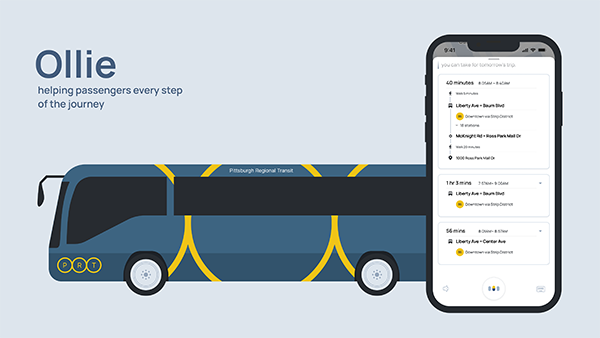
Originally conceived in their Interaction Design Lab (IxD), Ollie is a conversational assistant for Pittsburgh Regional Transit (PRT), Pittsburgh’s public transportation agency. As a voice assistant, it provides an intuitive one-stop solution for all inquiries related to bus transit/travel. Through dynamic and interactive engagement, Ollie collaborates with the riders to connect currently segmented public transportation experience to become holistic and comprehensive. Ollie's approachable and friendly attitude aims to keep riders informed during their trips anywhere, any time.
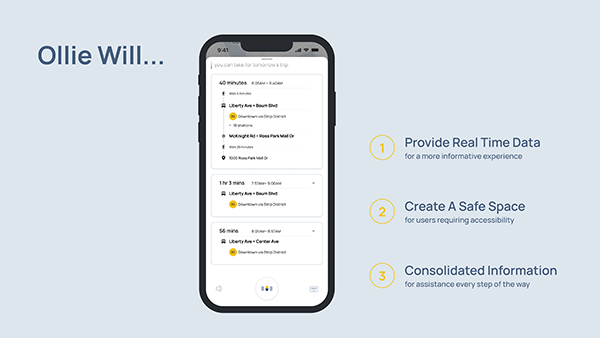
“Being students in Pittsburgh, riding the bus is the most convenient and widely used method of transportation for all of us in the group,” said Nam. “We all use buses operated by Pittsburgh Regional Transit (PRT) frequently and while they are a great convenience for students like us, we couldn’t help but notice some clear gaps in the experience. We noticed an opportunity to develop a smart voice assistant that would keep passengers informed, ensure their safety, and provide accessibility assistance through intuitive and dynamic conversations.”
The team found that most transportation apps today have a user experience that largely focuses on productivity and time efficiency. Ollie aims to go one step further by additionally ensuring that passengers have a safe and comfortable traveling experience.
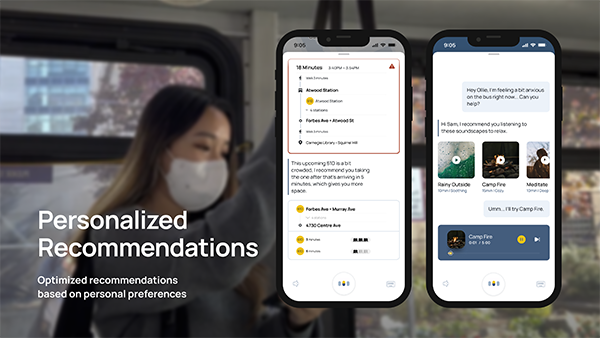
“The application focuses on enhancing the public transportation experience through interactive and conversational components in different phases of the user's bus ride journey,” said Nam. “Ollie goes beyond traditional transportation apps by providing real-time information, safety notifications, and accessibility assistance through intuitive conversations, both verbal and non-verbal. Additionally, Ollie can be accessed not only through mobile devices but also through interactive screens installed at bus stops, offering a seamless and integrated experience for passengers.”
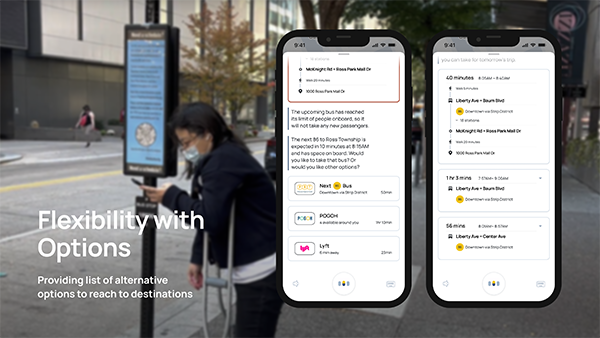
Through the process of designing Ollie, the team worked through numerous challenges. The app needed to be integrated with an existing PRT mobile app and interactive screens at bus stops, the team developed non-verbal ways of communication through motion design to cater to public spaces where Ollie would be used, and they worked on creating a conversation flow structure by identifying common patterns for interactions between Ollie and users during assistance scenarios.
Moving forward, the team is eager to not only see how the users engage with the voice assistant for a better bus experience, but to also evaluate the voice assistant's impact on the business and the local community.
“The goal of this project, as a next step, is to assess how the voice assistant affects the operation of the local business, PRT, and its broader impact on the local community,” said Nam. “Our team aims to measure the enhancements in customer satisfaction, identify any potential operational improvements, and gauge the overall benefits to the local community's transportation experience. This evaluation will provide valuable insights for future developments and optimizations of Ollie and its integration within the public transportation system.”
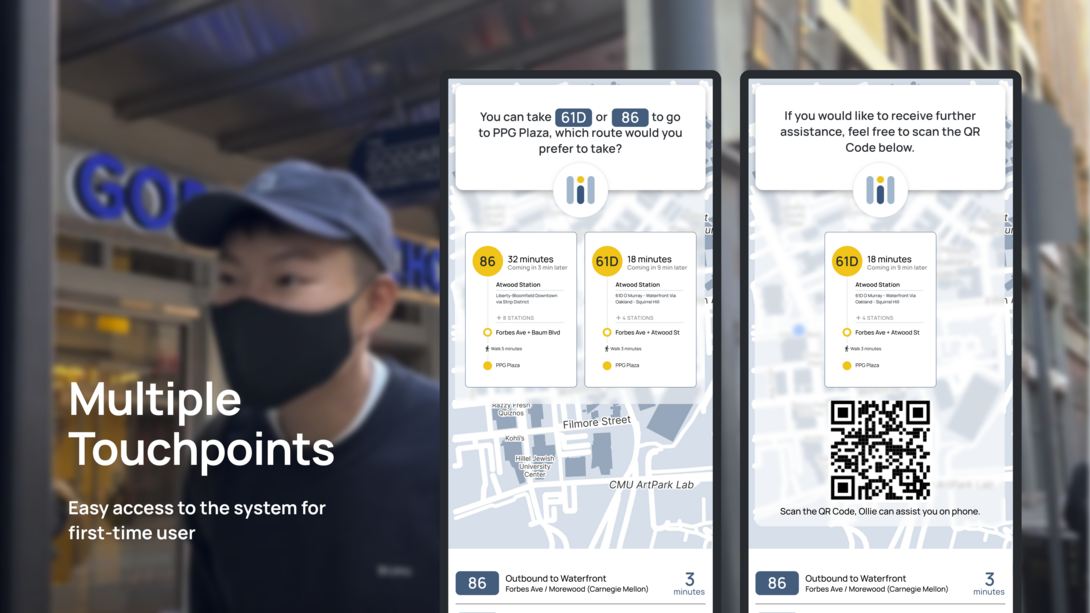
Reflecting on Ollie’s journey, the team looks back to the project’s beginnings in their IxD courses.
“The skills that the team obtained from their courses and the valuable experiences in the IxD Studio helped us create Ollie,” continued Nam. “The IxD Lab provided a platform for practical application of these skills, allowing us to experiment, prototype, and receive feedback from both our peers and instructors. Our focus in this course and the project was not only to create a functional prototype but also to create a holistic experience, keeping in mind every aspect of the daily commuters user journeys. The knowledge and feedback received in these educational environments greatly contributed to our ability to develop Ollie.